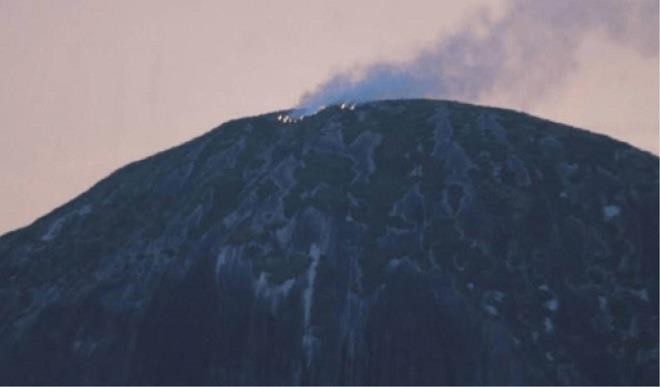Why Zuma Rock caught fire – Expert

This week, one of the most trending news was of one of Nigeria’s famous landmarks – Zuma Rock -‘catching fire.’
All sorts of reasons have been given for the ‘strange’ incident, with the most popular being voodoo. In a bid to provide verifiable explanation for the incidence, Daily Trust spoke to an expert who gave a scientific perspective on the matter.
Geologist and lecturer at the Nasarawa State University, Keffi, Dr. Kistso Ngargbu, said if it wasn’t grasses on the rock that caught fire but rather the rock itself that was on fire, then it would be a volcanic phenomenon.
Dormant volcanoes, Ngargbu said, exist on the plateau, then at the border between Nigeria and Cameroun on Mount Cameroun and a few within the interior like Zuma and Wase rocks.
What provoked some of the concerns was that the fire came after some rainfall, which in people’s view was odd.
But even though the incident took place after rainfall, Ngargbu, a member of the Nigerian Mining and Geosciences Society (NMGS) said, “If it is after rainfall and a particular boulder or broken pieces of the rock got saturated with water, that’s the contact between heat and the main rock body.
“In the event that it had to slide because water now serves as a lubricating surface, friction is created. We should remember that our forefathers used to make fire from rocks glided against each other. That is what could have happened. Rain water got to the surface, lubricated the boulder and then generated a sliding probably based on a sloppy surface, and in the event of sliding down the fire came up.
While stating that it’s not surprising the incidence has provoked talk about voodoo, he said, “As a scientist, I should offer a scientific possibility.”
On the possibility of a reoccurrence, he said, “Yes. Dormant volcanoes repeat themselves over cycles of several hundreds of years. If it is attributable to rock slide, then with rain and fragmented pieces getting lubricated where they make contact with the main rock body, we’ll continue to see such fireworks from the rock.”
Such incidences usually don’t happen without threats to habitats around. Ngargbu, leader of the Medical Geologists Specialist Group in Nigeria, said “Volcanic ash and dust are often rich in mercury. Mercury is carcinogenic (causes cancer). Volcanic dust can cause cancer of the lungs, bronchial or respiratory tract diseases and eye infection.
Zuma rock is located in Niger State, but is often associated with Abuja, due to its proximity to the Federal Capital.
This story first appeared in Daily Trust.









